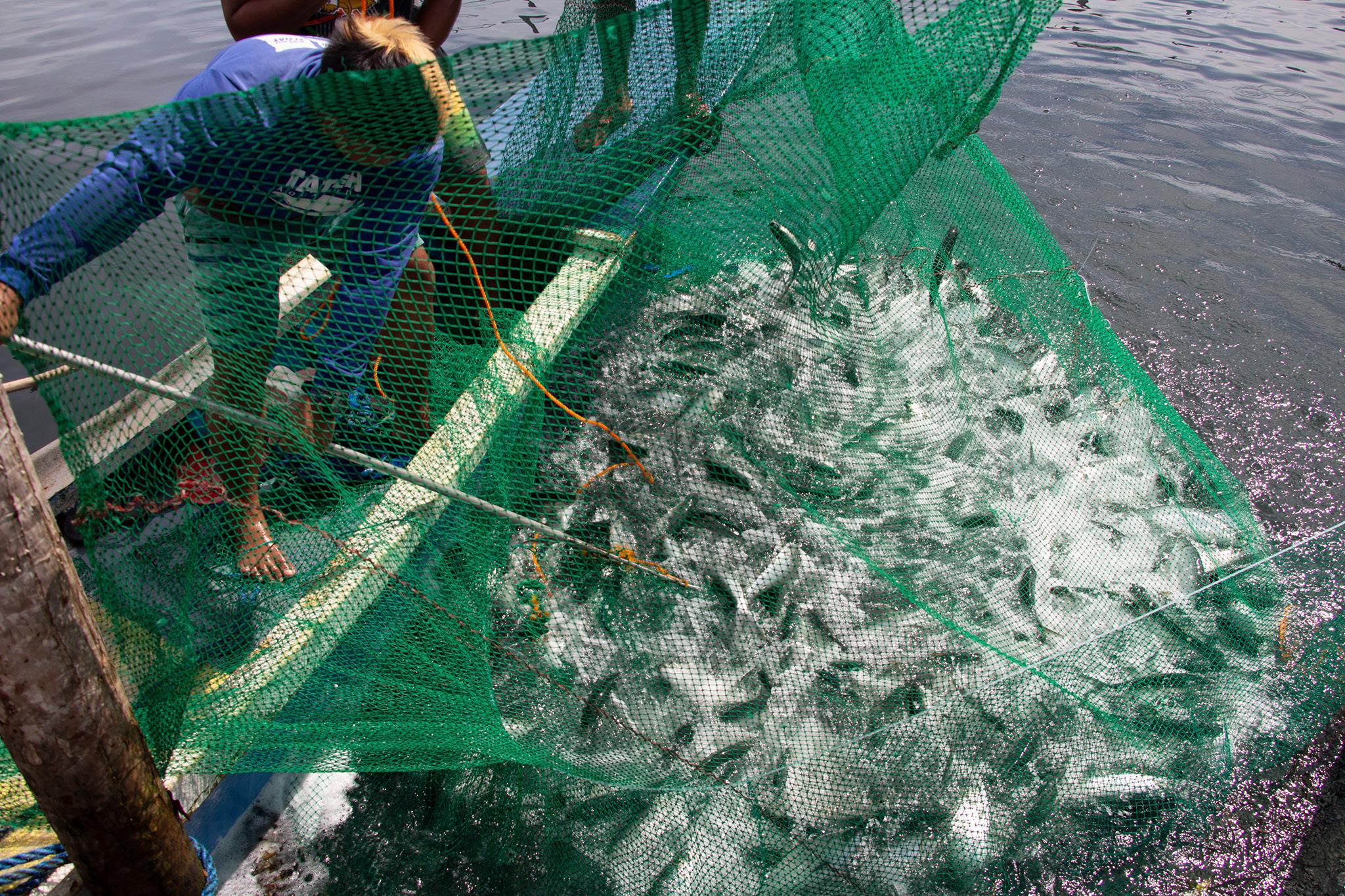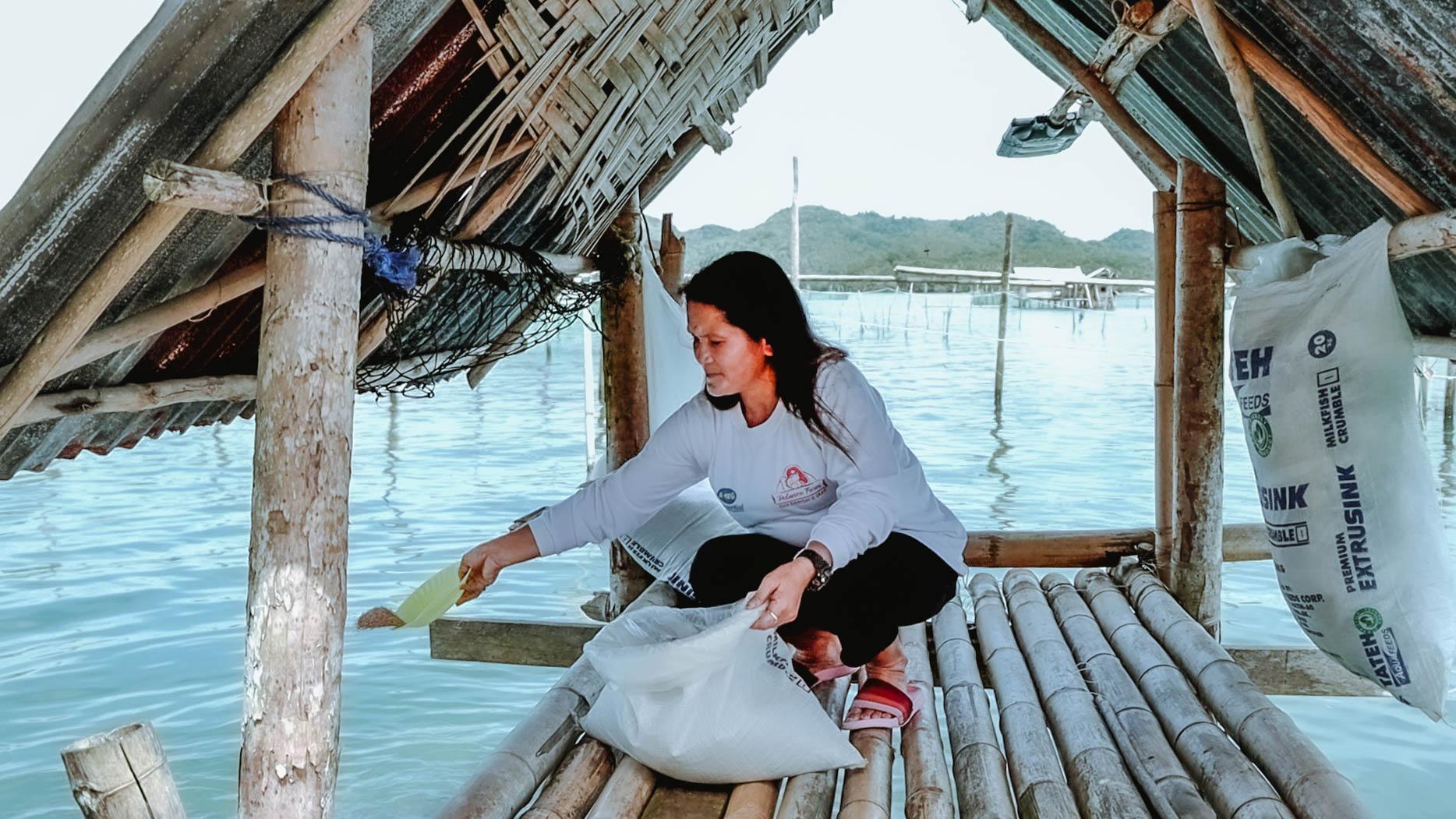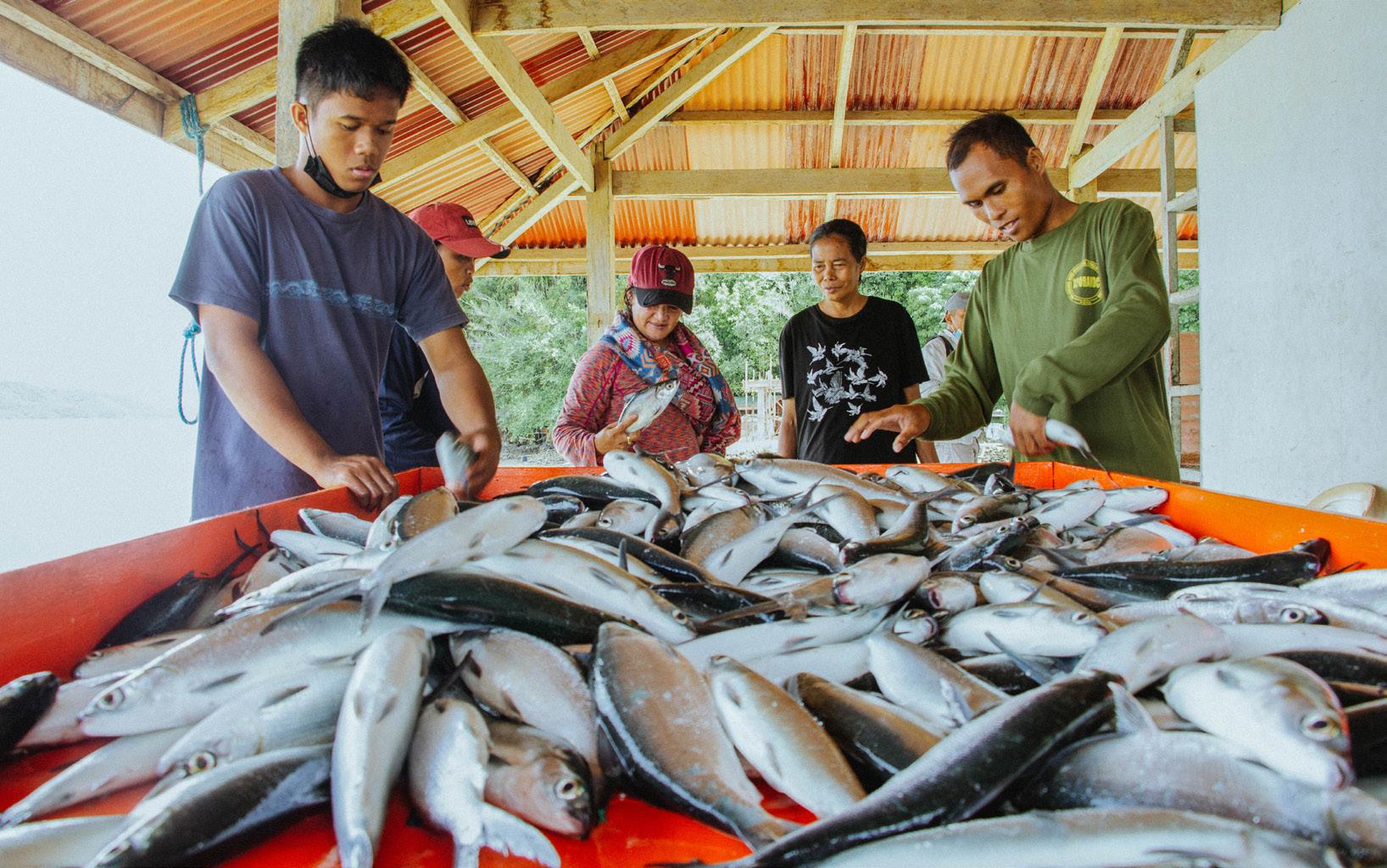
4 minute read
FEATURE: CATCHING DREAMS AT SEA: THE TALES OF HOUSEWIVES IN A COMMUNITY OF FISHERFOLK
Catching Dreams at Sea: The tales of housewives in a community of fisherfolk
While the chirps of the crickets resonate and the sun sleeps with the rest of the world, fishers in Barobo, Surigao del Sur set foot in their bangka in hopes to catch fish. They depend on their luck at sea to support the needs of their family. And like the sea, their catch has highs and lows, leading to uncertain income. Fueled with hardships and dreams, Vilma Guingue, 47, breaks the notion of the work once thought to be suited only for men. She accompanies her husband to help him catch fish at sea to feed their nine children waiting at home.
Advertisement
In a revolutionized world where gender equality is advocated, women like Vilma have the freedom to serve a key role in the food system, stepping up from her usual routine as a housewife.
Pushing to give a brighter future for their children, Vilma joined the Anunang Gamut Fishermen Association (AGFA) in 2017 where she found her purpose and her dreams coming true.

Sustaining the bangus aquaculture from the Mindanao Rural Development Program (MRDP) project in 2011, the local government (LGU) of Barobo helped AGFA to acquire the Bangus Production and Marketing project from the Philippine Rural Development Project (PRDP). In 2018, AGFA was granted a P1,164,135.55 worth of materials to raise 30,000 garungan or bangus fingerlings as an expansion to their MRDP project.
It never crossed to Vilma that this would force her to leave Virgelio in fishing. “I was always with my husband to catch fish at dawn. I thought my life would revolve around that. Then AGFA came and seeing their progress I took the courage to join. It was the best decision,” said Vilma.
AGFA welcomes everyone, embracing all genders in the community, With a total of 46 members as of 2021, they hold a 50:50 ratio of males and females.
With this, it opened an opportunity to Vilma to work as a a secretary and present herself as a caretaker for the additional pens and fingerlings, giving her an additional income.
“Before, we only depend on our catch and it’s rare to catch abundantly. However, aside from the share we receive from our bangus harvests, I now earn P4,000 every month. It’s a big help to my family. I was able to send two of my children to college. Thankfully, two of them completed their studies already,” Vilma shared tearfully.
Margarita M. Mabong, AGFA’s bookkeeper, also observed a shift in the attitude of Anunang residents.
“People here are happier and even look healthier since they can now eat properly and nutritiously. We can cook different bangus recipes. It was a huge difference before when we had no fish pens,” she happily said.
In sickness, health, and even in work, Delma and Vergilio take care of the bangus diligently. They feed them from time to time and ensure that the net has no holes so fingerlings would not escape. They also remove the dead fishes to avoid poisoning the live ones.
“It wasn’t hard for me since my husband helps.
If before I helped him to catch fish at sea, now it’s the other way around,” said Vilma.
Rising up
PRDP continues to uplift its proponent groups by providing infrastructure or capital needs and capacity building. Just this year, members and non-AGFA members were immersed in bangus bottling and processing training in partnership with the Bureau of Fisheries and Aquatic Resources (BFAR).
Like Vilma, this PRDP training encourages women in the community to do something relevant while their men are at sea. Vilma also encouraged her daughter to join and learn new skills.
“This boosted our morale as wives. While our husbands are busy at sea, we can do deboning and bottling, then sell these products. It’s extra income for the family, community, and the association,” said Rubelyn T. Cahilis, wife of an AGFA member. Barobo LGU is also in full support of the association, providing them materials such as pressure cooker, gas stove, kitchen wares, among others for the start-up of their bangus processing business.
Excessive harvest causes the fisherfolk to sell the bangus at a lower price, losing the chance of additional profit. Now, with the acquired knowledge of processing, the excess bangus can already be sold at a higher price.
Laying down
Alongside the Bangus processing, AGFA aims to expand its aquaculture into sea tourism with the support of Barobo LGU. interventions signified opportunities for a woman like her. She believes that giving them skill training pushes more women to find their voice in the community and start a business.
“I am deeply grateful for all the interventions given to this community, especially for including women and making us important,” Vilma expressed.
While women are no strangers to the hustles of being a housekeeper, with the unity of AGFA and government interventions, they unceasingly catch dreams in the endless sea of opportunities. (Zenny Awing, DA-PRDP RPCO 13-INFOACE/PIA-Surigao del Sur)











